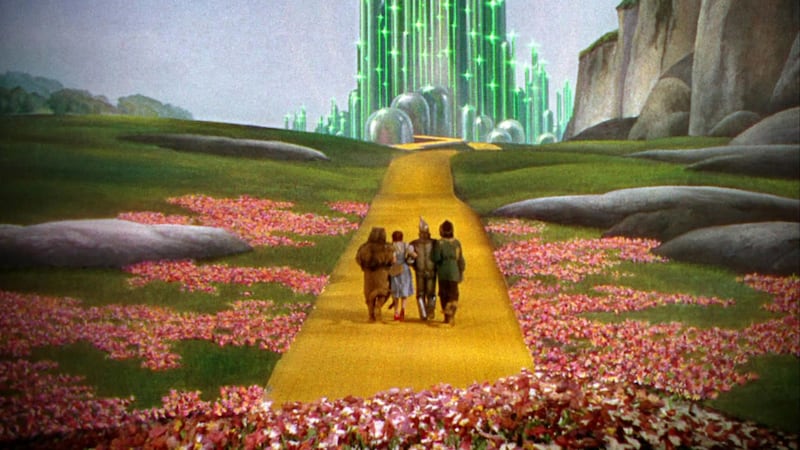It was heartening this week to see the support offered to DUP assembly member Carla Lockhart, the latest politician to be targeted by an online mob.
The Upper Bann MLA had come under quite sustained attack after posting a picture of herself with party leader Arlene Foster at a DUP dinner.
Some of the comments that appeared under the picture were cruel, hurtful, personal and completely misogynistic.
They were not about her politics, or DUP policy, but about her appearance.
Support was offered from Sinn Féin leader Michelle O'Neill, herself well used to the same type of abuse, who rightly pointed out that no one should have to tolerate such nasty and targeted commentary.
Naomi Long challenged some of those posting the hurtful comments, again no stranger to online abuse. The Alliance Party leader once took the novel approach of reading out on camera some of the abusive messages she receives online to highlight the problem.
Women in the public eye, particularly politicians, have become targets for online trolling that has turned a popular and useful platform like Twitter into a toxic place at times.
In the last five years as the popularity of the social media platform has grown so too has the number of users, sometimes anonymous, sometimes not, who misuse Twitter and abuse people.
At times this is obvious and deliberate abuse, on other occasions it is dressed up as humour. If the target of that joke doesn't find it amusing then they are labelled overly sensitive 'snowflakes'.
Most women are well used to this type of misogynistic 'humour', you grow up learning to smile at those who try to embarrass or degrade and move on with your life.
Those in the public eye need skin like a rhinoceros to deal with the daily jabs.
Most women I know self-censor their online comments, knowing that to express a strong opinion on any subject from sport to social or political issues can attract unwelcome abuse.
In the end many feel airing their views is not worth the hassle and isn't that a backward step to a patriarchal society where women's opinions were secondary at all times to those of men, regardless of how ill-informed those men are or how expert the women are?
What made the Carla Lockhart incident shock many is that she wasn't expressing a view or a political opinion, she simply posted a picture of two friends out for dinner.
That both women are elected, one a party leader, was not relevant to the picture and yet the personal abuse that followed was relentless.
It must be noted that not all was from men, one female poster claimed the picture was posted to invite abuse so unionists 'could play the victim'.
I don't even know where to start with that, some people are too far gone into their own world of 'them and us' to even try and debate with.
The publicity following the abuse rightly concentrated on Twitter's failure to responsibly manage and enforce their own guidelines.
The social media company claim they will immediately remove all targeted accounts – that is accounts set up purely to abuse individuals – but they don’t. I should know, I've reported enough of them.
But what it also did was show in stark and depressing terms just how sectarian this place is, scratch below the surface and there are sections of people in Northern Ireland who can use whataboutery to make just about any subject sectarian.
There are people who stagger about Twitter and Facebook like drunks in a bar looking to pick a fight.
Who cannot bring themselves to condemn something that is clearly and unequivocally wrong without adding an 'aye but what about' caveat to their comments.
Abuse of female politicians knows no religion or political shade, there are trolls on both sides who wait to pounce and then gang up to form a merry little mob to wear down their target.
They are - despite what they may think - no better than each other, whether their politics sits to the right, left or in-between, they have no moral high ground if they are engaging in personal abuse of a political representative.
Social media can be a valuable tool when it comes to instant engagement. Robustly challenging unfair or discriminatory political policies and practices is a healthy and normal part of the political discourse.
However, when that abuse becomes personal, based on appearance or casting moral judgment on others then the war is lost long before the battle has even begun.









